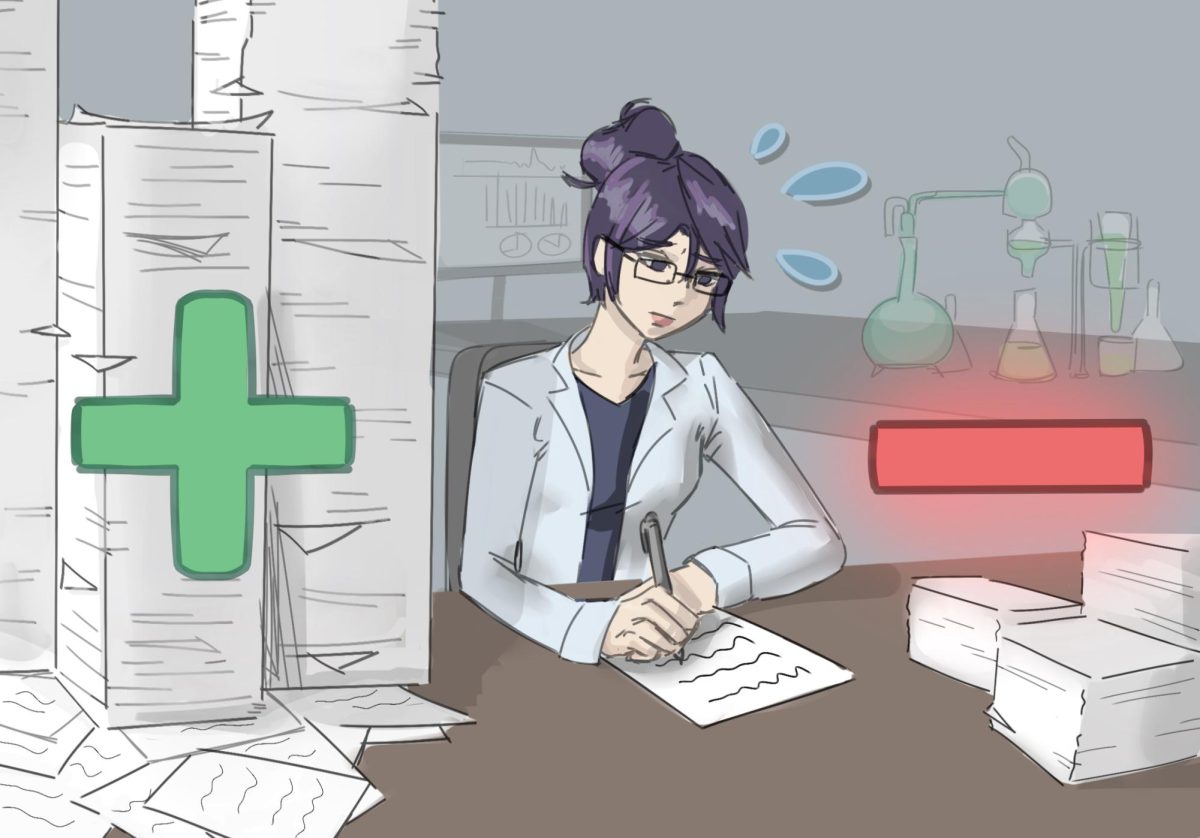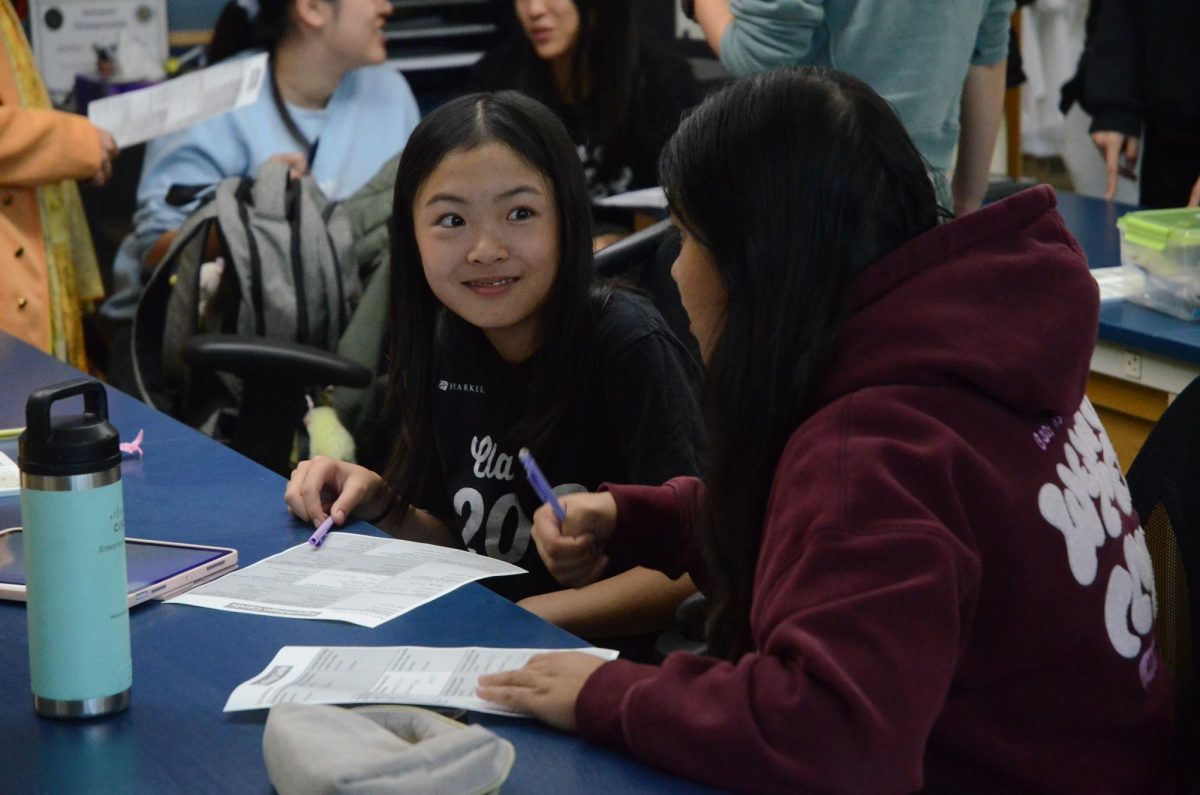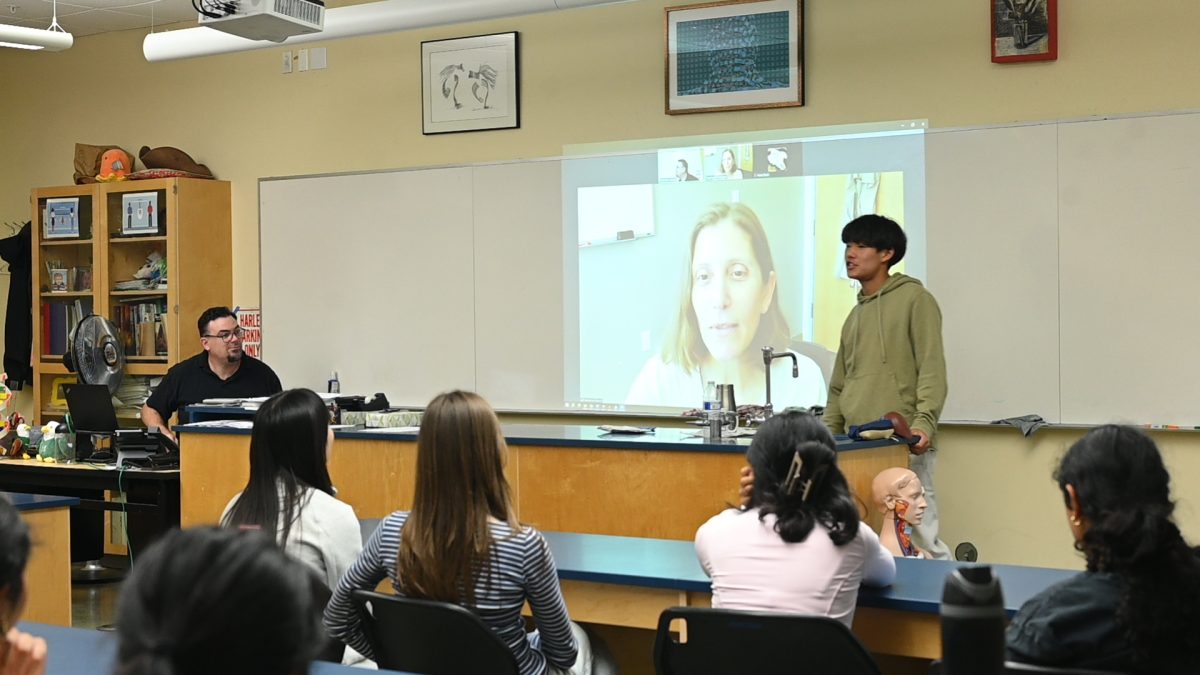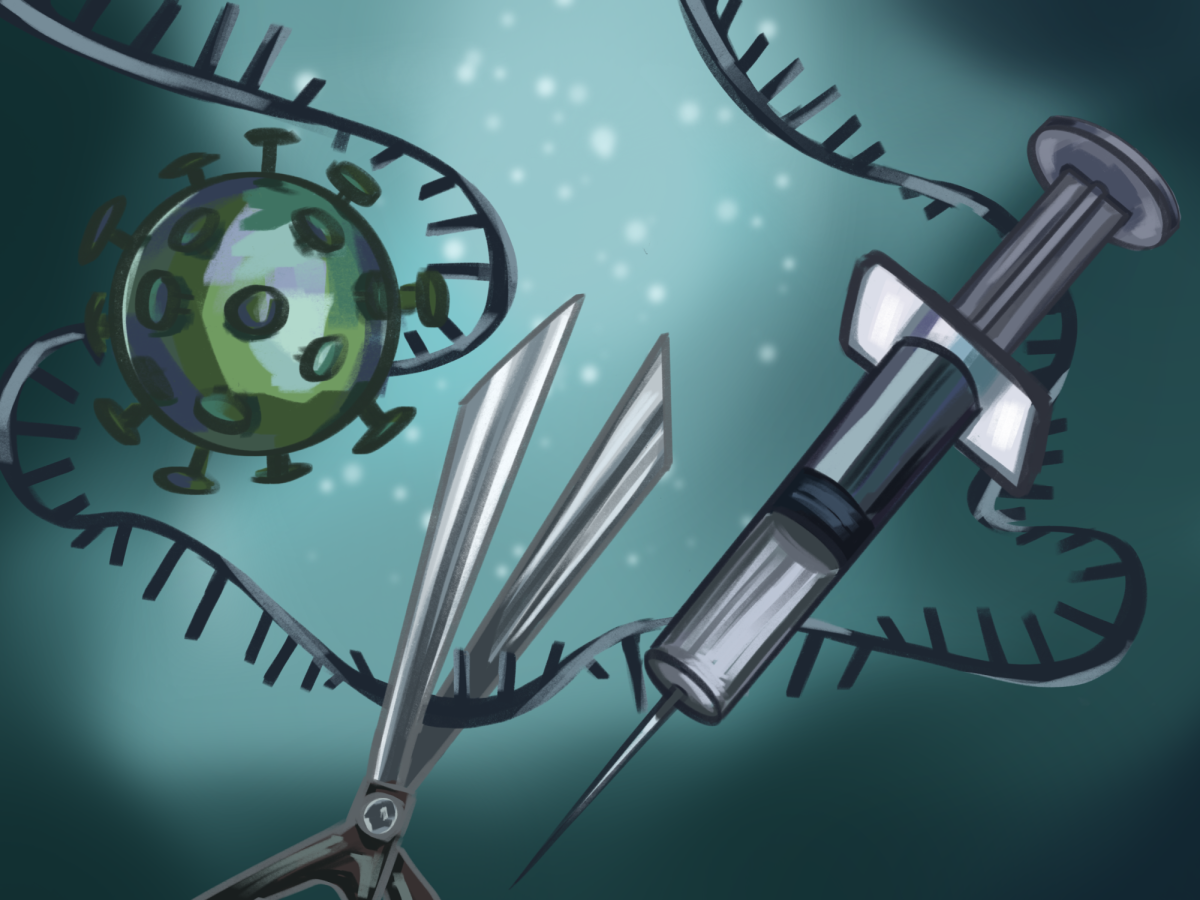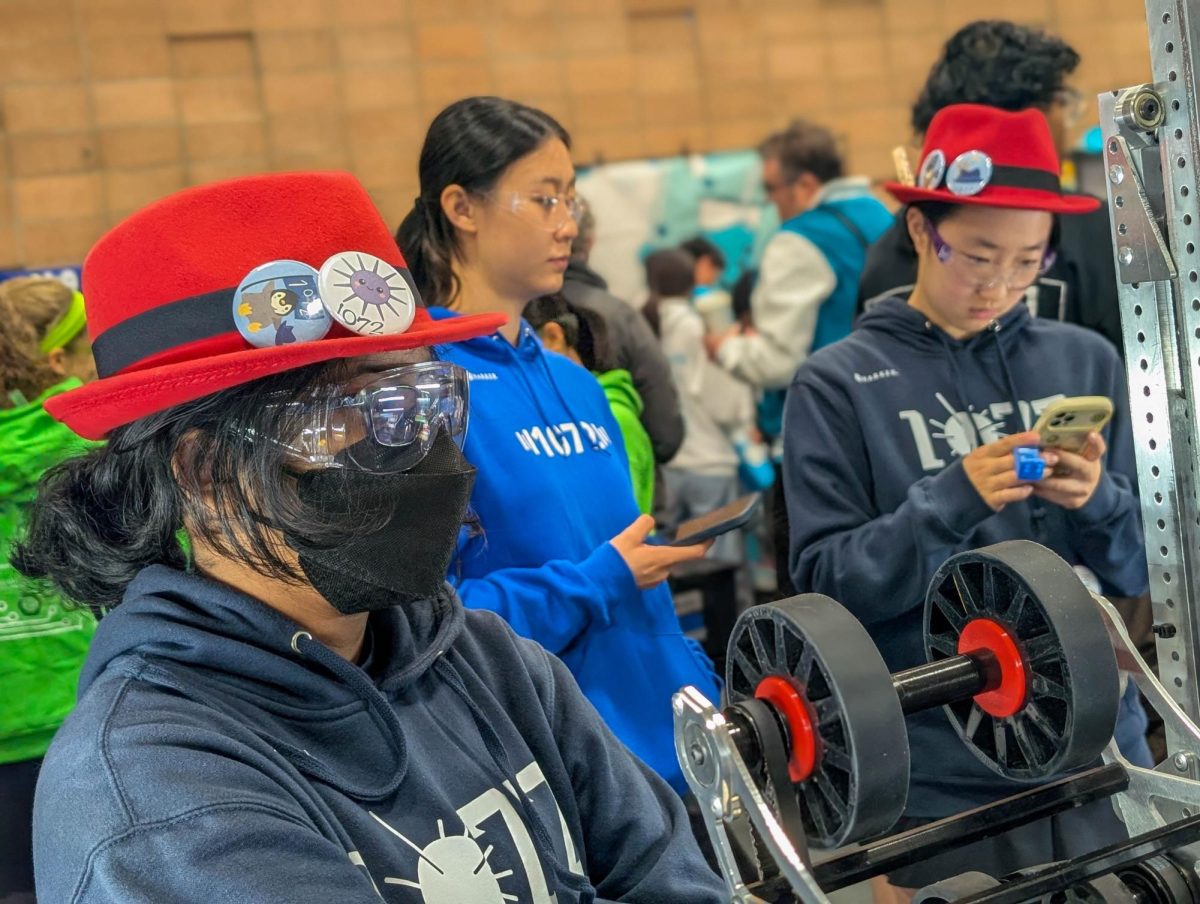Science is rife with failure. The scientific method dictates that researchers should observe, hypothesize and experiment often, revisiting and revising the process each time unexpected results arise. Yet positive results dominate professional journals, with over 85% of published papers arriving at hypothesis-affirming conclusions, while their negative counterparts remain underrepresented.
A negative result often equates to failure in a project, a stigma which reduces incentive to publish. Since negative results fail to definitively prove a hypothesis, they contradict the popular notions of science as advancing innovation or progression. Student researcher Tiffany Gu (12) recognized how important these negative results were to paving greater developments.
“When I first did research, I found negative results could be super challenging or troubling,” Tiffany said. “But when I started to mature as a scientist, I noticed how these negative results actually inform us as scientists a lot more than positive results because negative results happen a lot more. People should not be afraid of negative results because those are the times when you grow the most as a researcher or scientist.”
Biology teacher Zane Moore, who researched albino redwood trees, noticed that even beyond negative results, scientific literature deprioritizes studies that simply reproduce or do not build on already published work. Without the duplication of scientific findings, the validity of these claims is more difficult to assess. For scientists, one metric of validity are p-values, which estimate the possibility that results are not statistically significant.
“If the only thing that you see published are those with the low p-values where it’s like, ‘Oh yes, this is real,” Dr. Moore said. “If that’s the only thing that gets published, you’re never going to see potentially dozens of other studies that get negative results or get high p-values where we say we didn’t find anything significant. It’s important so that we can see if something truly is reproducible beyond the p-value from one experiment.”
Negative results reported in literature, though reduced in impact, can serve as helpful tools to speed up the timeline of a project. Tiffany appreciated how a particular paper, which reported a compound’s lack of inhibition of an enzyme, provided more direction for her research.
Dr. Moore compared these negative results to the classic saying, “You are more than your grade,” emphasizing the importance for younger researchers to detach their own scientific worth to their experimental data.
“[Getting a negative result] makes you actually in some ways a better scientist because you went out biased,” Dr. Moore said. “But you tested something and found a result that didn’t fit with your hypothesis, that’s your preconceived sort of bias. It is super important for young scientists to not get caught up in, ‘This is my hypothesis.’ Hypotheses change all the time and you need to be able to adjust accordingly.”
Despite negative results’ broad applicability for scientists, and 81% of surveyed researchers would like to publish those results, only 12.5% have the opportunity to. Because journals have no incentive to publish negative results, the effect is cascaded to other researchers.
There are also financial barriers preventing scientists from publishing negative results. Government grants fund almost 55% of all academic research in institutions of higher learning, which demands that researchers justify their work for grant renewal. Auditors may perceive a lack of positive research results as reason to cut funding, further pushing researchers to only publish novel findings.
“People think that if you obtain a negative value in a student setting, it’s not as important because it’s a process for learning,” Research Club officer Cynthia Wang (10) said. “But in a more professional setting, it could cause a lot more confusion. Therefore, people believe if it causes this much confusion, then you might as well just ignore this research.”
For students conducting research without these financial pressures, unexpected results often serve as a learning opportunity. While environmental factors may prevent general impressions on negative research results from changing, young scientists have the opportunity to embrace these setbacks and understand they are a natural part of the process.
“A lot of times when you do research, you sort of expect something to happen and then you start doing it just to confirm your hypothesis,” Cynthia said. “But a lot of times, maybe you realize this step doesn’t connect as you expect it to, which might cause your expectations to be off. I feel like when you’re in the experiment, it’s always more important to make sure that your experiment is going correctly than to just change things to make sure that it fits your hypothesis.”




![LALC Vice President of External Affairs Raeanne Li (11) explains the International Phonetic Alphabet to attendees. "We decided to have more fun topics this year instead of just talking about the same things every year so our older members can also [enjoy],” Raeanne said.](https://harkeraquila.com/wp-content/uploads/2025/10/DSC_4627-1200x795.jpg)


















![“[Building nerf blasters] became this outlet of creativity for me that hasn't been matched by anything else. The process [of] making a build complete to your desire is such a painstakingly difficult process, but I've had to learn from [the skills needed from] soldering to proper painting. There's so many different options for everything, if you think about it, it exists. The best part is [that] if it doesn't exist, you can build it yourself," Ishaan Parate said.](https://harkeraquila.com/wp-content/uploads/2022/08/DSC_8149-900x604.jpg)




![“When I came into high school, I was ready to be a follower. But DECA was a game changer for me. It helped me overcome my fear of public speaking, and it's played such a major role in who I've become today. To be able to successfully lead a chapter of 150 students, an officer team and be one of the upperclassmen I once really admired is something I'm [really] proud of,” Anvitha Tummala ('21) said.](https://harkeraquila.com/wp-content/uploads/2021/07/Screen-Shot-2021-07-25-at-9.50.05-AM-900x594.png)







![“I think getting up in the morning and having a sense of purpose [is exciting]. I think without a certain amount of drive, life is kind of obsolete and mundane, and I think having that every single day is what makes each day unique and kind of makes life exciting,” Neymika Jain (12) said.](https://harkeraquila.com/wp-content/uploads/2017/06/Screen-Shot-2017-06-03-at-4.54.16-PM.png)








![“My slogan is ‘slow feet, don’t eat, and I’m hungry.’ You need to run fast to get where you are–you aren't going to get those championships if you aren't fast,” Angel Cervantes (12) said. “I want to do well in school on my tests and in track and win championships for my team. I live by that, [and] I can do that anywhere: in the classroom or on the field.”](https://harkeraquila.com/wp-content/uploads/2018/06/DSC5146-900x601.jpg)
![“[Volleyball has] taught me how to fall correctly, and another thing it taught is that you don’t have to be the best at something to be good at it. If you just hit the ball in a smart way, then it still scores points and you’re good at it. You could be a background player and still make a much bigger impact on the team than you would think,” Anya Gert (’20) said.](https://harkeraquila.com/wp-content/uploads/2020/06/AnnaGert_JinTuan_HoHPhotoEdited-600x900.jpeg)

![“I'm not nearly there yet, but [my confidence has] definitely been getting better since I was pretty shy and timid coming into Harker my freshman year. I know that there's a lot of people that are really confident in what they do, and I really admire them. Everyone's so driven and that has really pushed me to kind of try to find my own place in high school and be more confident,” Alyssa Huang (’20) said.](https://harkeraquila.com/wp-content/uploads/2020/06/AlyssaHuang_EmilyChen_HoHPhoto-900x749.jpeg)



